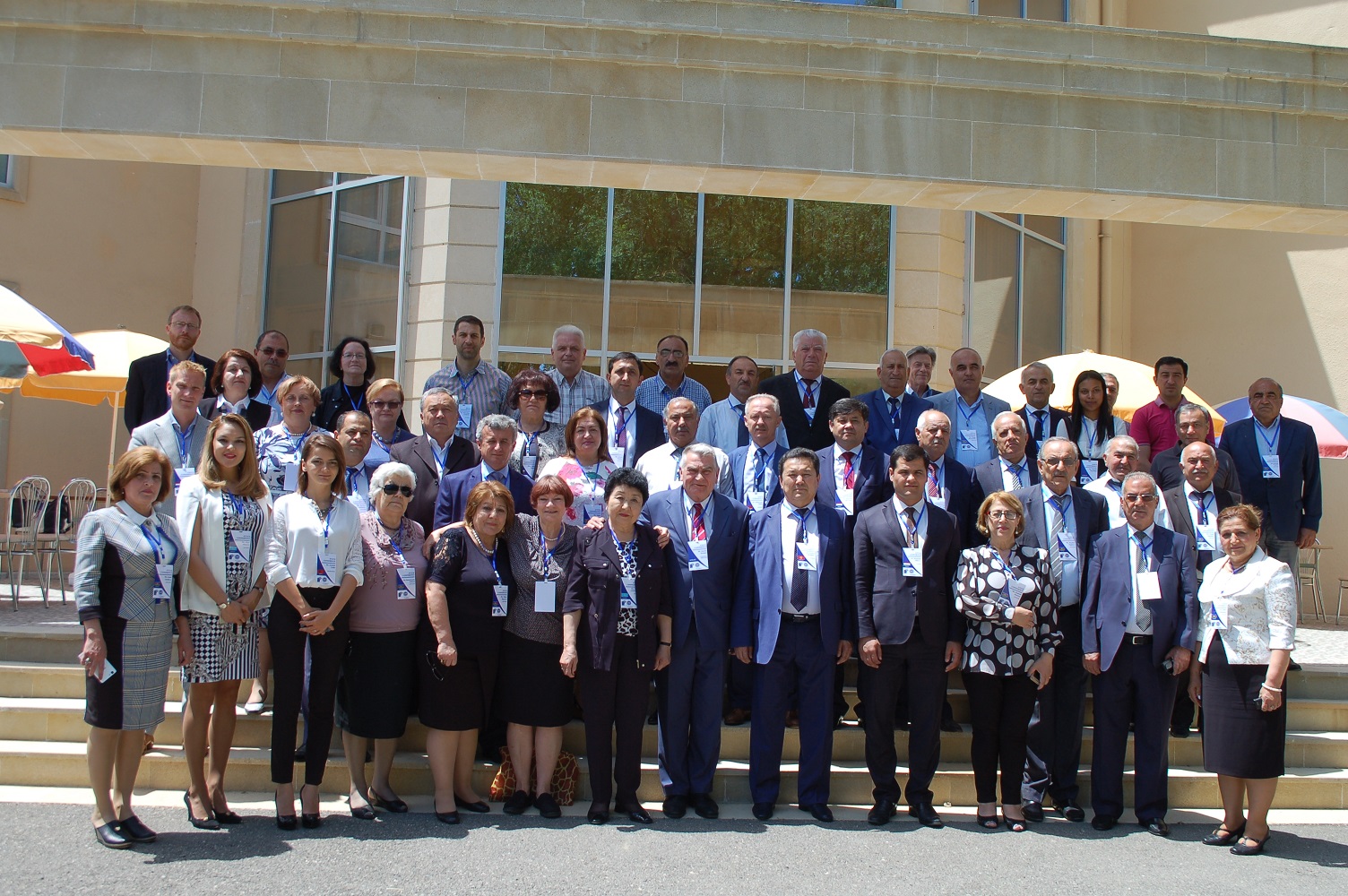Peace Education: ETUCE organised successful conference in Baku
Published:
On 2 and 3 June 2016, ETUCE in cooperation with its member organisation in Azerbaijan, the Independent Trade Union of Education Workers of the Azerbaijan Republic (AITUCEW) organised a conference titled “Strengthening the capacity of teacher trade unions to contribute to the promotion of education as a tool for creating friendly, tolerant and peaceful education environment”. In this context, the conference addressed important topics such as conflict resolution and the promotion of joint values such as peace, tolerance, nonviolence and respect in the education sector.
The Conference gathered delegates from ETUCE member organisations in Western as well as Central and Eastern Europe. The ETUCE President Christine Blower welcomed all conference participants and she thanked the colleagues in Azerbaijan and the ETUCE Secretariat for the organisation of the event on behalf of all guests.
At the panel discussion, ETUCE member organisations from Albania, Azerbaijan, Bulgaria and Germany shared their experiences providing a broad overview of activities promoting peace education and nonviolence conducted in their countries.
Nevrus Kaptelli, the President of the Independent Trade Union Education of Albania, SPASH-ITUEA, said: “In the education sector our priority as a trade union is to raise awareness among the teachers on the importance of establishing a strong fundament which the values of peace in the mind of each student can be built on”.
Bulgarian Teacher Union (SEB) President Yanka Takeva underlined that for more than twenty years SEB has been successfully working on problems associated with the impact of aggression and violence in kindergartens and schools.
The Deputy Minister of Education of the Republic of Azerbaijan, Firudin Gurbanov attended the conference on behalf of the Minister of Education. Gurbanov emphasized the importance of the two topics and the key role of education in the prevention of different types of conflicts. He informed the participants that 2016 was the year of multiculturalism in Azerbaijan. According to Gurbanov a number of events related to peace education promotion through multiculturalism are to be conducted among students in cooperation with teacher trade unions.
Agil Dadashov, the Vice-President of the Azerbaijani Trade Union Confederation, outlined the central role of teacher trade unions in the promotion of peace education as well as the importance of its wide media coverage.
Invited speakers from Bulgaria, Cyprus, the Netherlands, Norway and the United Kingdom provided the participants with more information to support in-depth understanding of the topic and its role in shaping societies with values of peace, tolerance and mutual respect.
In his presentation Dr. Rens Willems from the University for Peace, UPEACE Centre The Hague, the Netherlands, stated: “Education can provide young citizens with the skills to tackle challenges of conflict and development at local, national and global levels”. Dr. Gearoid Millar from the Institute for Conflict, Transition, and Peace research (ICTPR), University of Aberdeen, the United Kingdom, outlined that it had long been recognised that education communicates or transmits to students more than what is explicitly included in lesson plans or tested in exams. Education also transmits or communicates a ‘hidden curriculum’. Social and moral lessons for life that is modelled within the education system and transmitted invisibly. Dr. Michalinos Zembylas from the Open University of Cyprus said: “Teachers and students need to develop the skills of critical analysis rather than ‘knowledge’ ”. Prof. Magnus Haavelsrud from the Norwegian University of Science and Technology, Trondheim, explained to the participants the different types of nonviolence such as non-resistance, active reconciliation, moral resistance, passive resistance, peaceful resistance and etc. In her presentation via Skype, Prof. Tatyana Dronzina from St. Kliment Ohridski University of Sofia, underlined that education for peace should acknowledge students about existing social differences, instead of trying to conceal them. It should also explain the resulting obligations and responsibilities.
All speakers gave comprehensive and very interesting presentations and built the ground for discussions on how member organisations and ETUCE could come further on the issues of Peace Education. It was concluded, that ETUCE will make sure to dedicate space on the website for member organisations to share best practices.
At the Conference’s concluding session ETUCE European Director Martin Rømer said: “As teachers we have a huge responsibility to teach young people about alternatives by showing that there are better ways to solve conflicts rather than violence. As trade unions we must try to support our members”.
A final report of the Conference will be given to the ETUCE Committee in October.